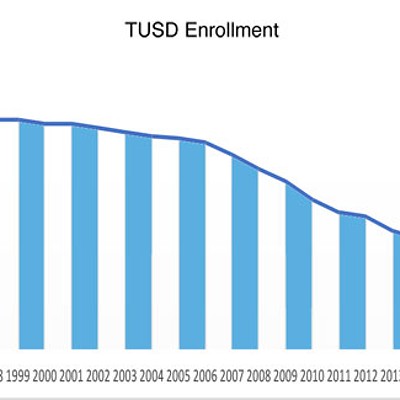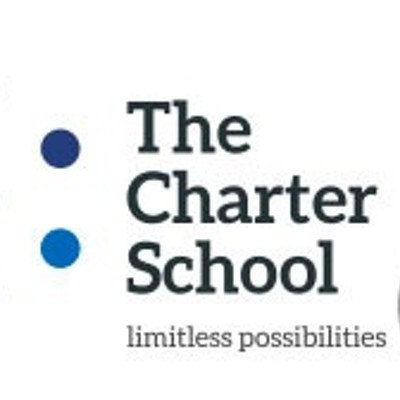The Children's Action Alliance released its report card for this year's legislative session last week. Lawmakers were graded on their votes on six bills related to the funding and polices of Child Protective Services, support for foster children, a change in eligibility for unemployment benefits, and the overall state budget.
All Southern Arizona Democratic lawmakers scored 100 percent on the report, while grades for Republicans were mixed:
• State Rep. Ethan Orr earned 83 percent because he voted in favor of the changes to the unemployment benefits, which makes it easier for the state to reject applicants.
• State Sen. Al Melvin and state Rep. Adam Kwasman earned 67 percent on the report card because they voted against the state budget and in favor of the changes to unemployment eligibility.
• State Sen. Gail Griffin and state Reps. David Stevens and David Gowan earned 50 percent on the report card because they were among a handful of Republicans who voted against allowing foster kids to get a tuition waiver at Arizona universities and community colleges, and they also supported the changes in unemployment eligibility and opposed the state budget.
The Weekly spoke with Children's Action Alliance president and CEO Dana Naimark about the legislative session.
Overall, how do think the session went for children and families?
The session went very well for children and families, especially compared to the disastrous sessions of the past several years.
One of the first bills that the Legislature voted on was an immediate boost for Child Protective Services funding. Why was that boost to CPS necessary?
We've seen skyrocketing growth in the number of reports of child abuse and neglect, and in the number of children needing foster care. And the system has been simply overwhelmed. The system has not recovered from the budget cuts from fiscal year 2009.
There was another bill, SB 1375, that overhauled some CPS procedures and policies. What was that all about?
That goes in combination with the funding increases to try to lay the foundation to turn some of those trends around. That bill contained a number of policy changes, including some things to improve accountability and transparency; continuing a legislative oversight committee; requiring some new and specific reporting; and requiring a special look at behavioral health services for kids in foster care. One of the most important is laying the foundation for what's called an alternative response plan, which will be to create a community response to some reports of abuse and neglect that don't need a full CPS investigation, to basically use our resources more effectively for kids and families. That approach is used widely in other states and can be key to strengthening our total CPS system.
Tell me about this community response approach.
We have a lot of community-based organizations around the state that do a lot of work to strengthen families now. It's really bringing those to bear in cases where the report of abuse or neglect that comes in doesn't need a full CPS investigation. So it's when a connection with some other community resources or some parent coaching can be enough to strengthen the family and get them back on track and prevent the need for foster care and the trauma of foster care. What it will look like, we don't know yet. Right now, the state is going to begin to design our own plan, looking at what works in other states and our past experiences here.
Another of your key bills involved reducing some of the administrative hurdles for foster homes. Why was that important?
Our system is so overwhelmed that we actually have a shortage of foster families. And while foster families do have to jump through hoops because we want to make sure that they are ready and prepared and trained to do the job they need to do safely, we also don't want to create unnecessary hoops and extra requirements that don't add to child safety. We've heard for a long time that requiring an annual renewal, which involves going through a lot of these procedures over again, just didn't make sense. It's exciting when we can make a change that removes some of those unnecessary procedures that take away time and energy but that still preserves child safety and the goals we're trying to get to.
You were also happy to see a tuition waiver for foster kids who want to attend college. What kind of challenges are there for foster kids who want to go on to higher education?
There are huge challenges. Just picture yourself turning 18 and not having a family of your own to back you up in your next choices in life with college and career. It's a very scary thought. And so these kids face many financial challenges, but really also don't have the mentoring, the psychological support, the fallback that our own families can be for kids who turn 18. This is very exciting because it removes, largely, the financial barriers, but we've also started a whole network with the universities and the community colleges and are really talking about the broader support that is needed with student mentoring and student support.
One bill you opposed set new standards for eligibility for unemployment benefits. What were your concerns there?
This is a complex bill because a lot of what's been said about it isn't really grounded in the facts and reality. Our concern is that we don't want to create extra burdens for workers who deserve unemployment benefits. Those unemployment benefits are a crisis safety net that can keep families stable during periods of unemployment. Now, the state agency has told us that they're not changing the requirements based on the bill, so it remains to be seen how it will play out.
As long as we're grading things: Overall, what grade would you give the social safety net for kids in Arizona?
Oh, the social safety net is still pretty weak, even though this session made some very positive and important steps. Overall, the safety net for kids is a C or a C-minus. There are still great holes and we've got a long way to go. We're very hopeful, and what was key about this legislative session was some bipartisan problem-solving and some bipartisan support. Kids are not a partisan issue and kids always win when different parties work together. We hope to see more of that in the future.

















